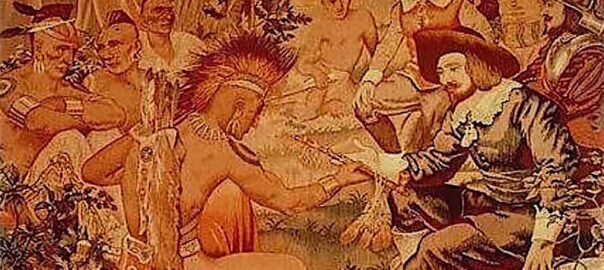
Hello friends! It has been months since I have posted. This pause was deliberate. I wanted to let some time go by and see the consequences of the 2024 elections (It is plural because Americans elected thousands of public servants, not just a President) in the USA and some of the international leadership decisions in various places of conflict and change.
During this time, I have been busy editing and writing books, speaking and advising at several churches, and teaching my seminary students. I am very encouraged by the efforts of many, seeing communities flourish spiritually and socially, and my students from around the world are always an inspiration.
I am a co-author with Assemblies of God USA General Superintendent Doug Clay of a new book available in August 2025 entitled, 13: Leadership is More than Luck. We find life and leadership wisdom from each of the 13 General Superintendents that have led our Fellowship since 1914. We explore the historical and spiritual context of their time in office and find timeless wisdom from their ministries. This is not a sanitized hagiography that avoids the challenges of the day. These are real and remarkable leaders that can help us be more effective in our service to the Lord. Please take a look!
Starting with this essay, I will begin a long-running series I am calling, Letters from Exile. I am choosing this theme so that I can encourage discernment and thoughtfulness among my readers. Christians are always dual citizens of the kingdom of God and their particular location. Christianity, while influential in Americana and Western history, is a global faith that originated at the crossroads of the continents and now extends to all nations. I do appreciate the USA and the aspirational principles of our founders and framers. At the same time, no empire or nation will be perfect until the Day of the Lord.
In 1976, during the Bicentennial celebrations, I declared myself an exile. I could not agree with some of the conservative voices declaring the United States a chosen nation favored by God. I also vehemently dissented from voices on the Left that made America the moral equivalent of Stalin’s Soviet Union or Mao Zedong’s China. Reading the Bible carefully, I discovered that God’s people – from the Jews in exile in Babylon in the 6th century BC to all Christians across time and place – are called to flourish in in the places they are living, bringing spiritual and social good (Jeremiah 29; Philippians 2:12-16).
I do think the USA has been a force for good in history, as well as falling short of her ideals again and again. Our First Amendment, part of the Bill of Rights in the US Constitution, is unprecedented in history for the freedoms it espouses, especially the first sentence declaring complete freedom of conscience and religion. American ideals in the Declaration of Independence, the Constitution and the Federalist Papers were subverted by our nation’s original sin: permitting the chattel slavery of African Americans. We did fight a Civil War to end slavery de jure (by law); however, it took another century to end unequal rights for Black Americans both de jure and de facto (the Civil Rights and Voting Rights laws of 1964 and 1965). We are still in need of greater reconciliation and redemption that ends racial tensions and opens doors for all to flourish.
Throughout our history we have been both hospitable and hostile to immigrants. While Ellis Island welcomed millions from the 1870s to 1914, Chinese Exclusion Acts were closing doors on immigration and severely restricting freedom for those in the USA. In the 1920s to 1940s, the USA closed its doors to Jews fleeing the antisemitism of Nazi Germany and other nations. We also opened the doors again after World War Two and supported the birth of the modern nation of Israel in the shadow of the Shoah.
Our nation, like each person we meet, is both beautiful and broken, with signs of grace and personal and systemic sins. In forthcoming essays, we will explore how to think deeply and act decisively in an age of outrage and reaction, ideological entrapment and social media anarchy.
I look forward to sharing ideas that may help us all become more thoughtful. We can be kind without compromise, tolerant without losing clarity, and hopeful in the midst of the helplessness so many feel. Thank you for your prayers, responses, and the seen and unseen good each of you bring to our world each day.


